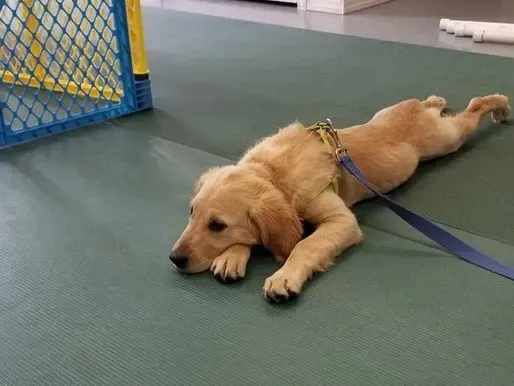BLOG
Dog training and behavior advice from Certified Trainer, Michelle Wieser

Puppy Socialization: the first 16 weeks
Puppy Socialization: the first 16 weeks

Between the age of 3 and 16 weeks, puppies go through a critical socialization period. This is a sensitive period of development where puppies learns to communicate and relate to other dogs, people, and the environment. It's the most influential learning period of a dog’s life, and forms the foundation for all future learning.
The human socialization period lasts 7 years. If a 6 year old was never exposed to a variety of environments and people, that child’s social skills would be impaired. In essence, this is what happens to puppies when they are provided with limited or no exposure until they are 4 months old.
Bring home your puppy at 8+ weeks
The ideal time to acquire a new puppy is around 8 weeks of age. Keeping the puppy with his mother and litter mates until 8 weeks allows the puppy to begin to develop dog communication skills.
If you bring home a prior to 8 weeks, there’s a chance he’ll develop problems later on. Separation from the litter as early as 6 weeks of age may lead to separation anxiety and poor dog communication skills.



The 'fear period' between 8 and 10 weeks
Research shows that a fear period occurs between 8 and 10 weeks of age. Traumatic experiences during this sensitive period could produce lifelong fear responses. Be cautious about what your puppy is exposed to, and to make all experiences as positive as possible.
Create positive social experiences
A lack of positive experiences during the first 16 weeks can create dogs that are fearful, withdrawn, anxious or aggressive in new environments, around unfamiliar people or animals. Owners will often think their puppy was beaten or abused, but a fear response may be due to a lack of exposure.
Socialization is not just about puppy play and going to new places. Good socialization helps your puppy create a positive association with new experiences including objects, sounds, surfaces, physical touching and other animals.
Tips for positive socialization:
Pick playmates carefully - choose friendly, outgoing puppies and dogs
Monitor play - gently interrupt if a puppy is fearful or bullying others
Give your puppy space to observe 'scary' things at a distance
Feed treats while practicing handling, restraint, nail trims and grooming
Bring treats and toys to vet visits to make it a positive experience
Provide safe exposure to new sounds, surfaces and objects - feed treats to create a positive association



Start training early
Although they are not yet fully coordinated and their attention spans are short, puppies are able to form long-lasting memories at 8 weeks. That is the perfect time to begin teaching them appropriate behaviors and preventing bad habits from forming in the first place.
In one study, dogs that had not attended puppy socialization classes were more likely to display behavior problems involving fear or aggression toward strangers, unfamiliar dogs, or environmental stimuli.



Need help with your new puppy? Contact me about Puppy Start Right Preschool, a socialization program designed by a Veterinary Behaviorist to prevent behavior problems.
Need more details? Get in Touch.
I'm here to help. Contact me by email or social media.









